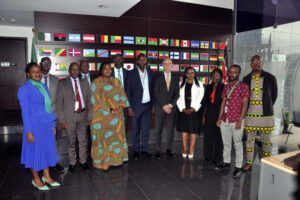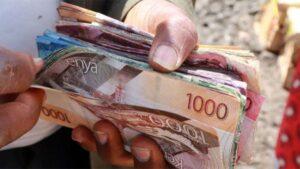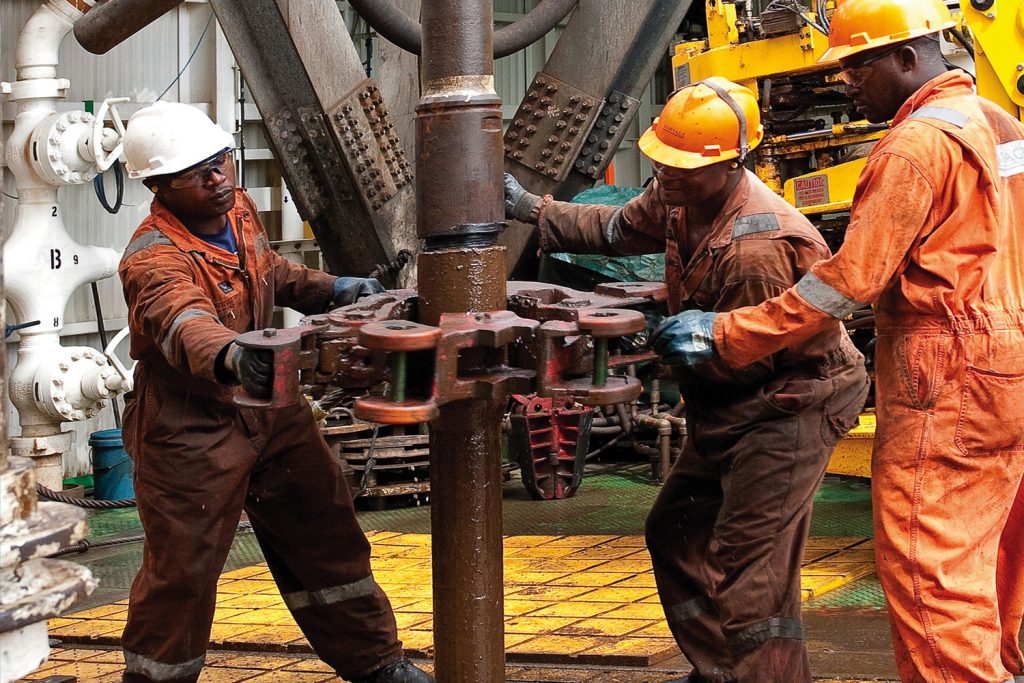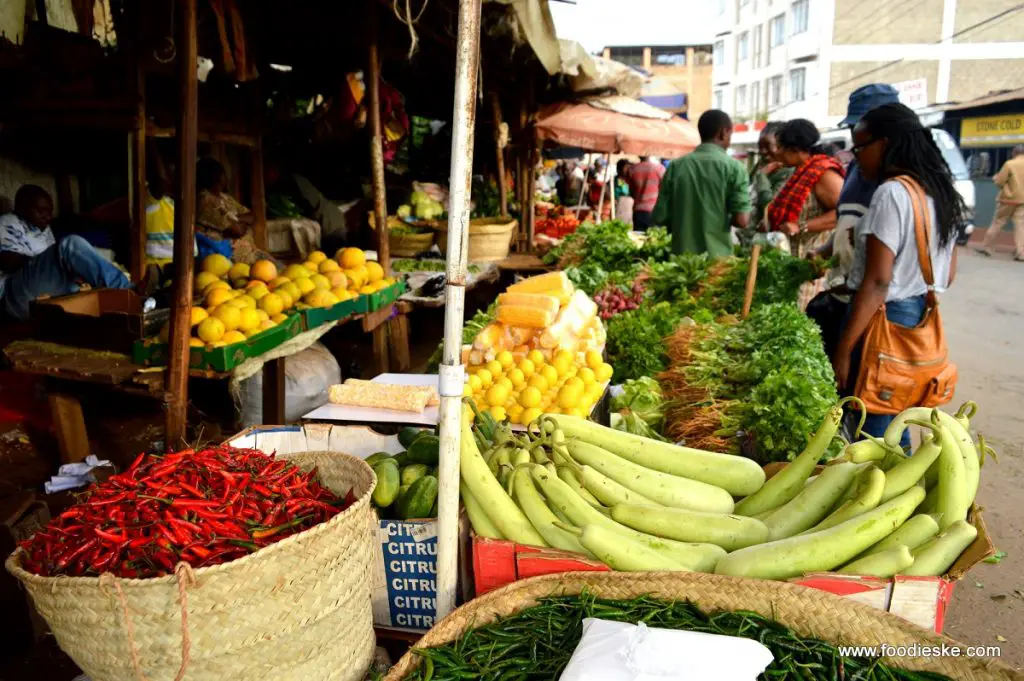- Kenyan Farmers Receive $2M Boost from Africa Fertiliser Financing Mechanism
- Brace for High Interest Rates for a Longer Period World Bank Warns Kenya
- Kenya-Ethiopia Trade Relations: Legislators Advocate for Policy Alignment to Boost Ties
- Visualising the state of debt in Africa 2024
- Abu Dhabi radiates optimism as over 300 startups join AIM Congress 2024
- TLcom Capital Raises $154 million in Funding to Boost Its African Growth
- Africa’s $824Bn debt, resource-backed opaque loans slowing growth — AfDB
- LB Investment brings $1.2 trillion portfolio display to AIM Congress spotlight
Month: April 2020
The world recorded another day in history —April 20, as the day oil prices globally took a negative dive, dropping below zero for the first time. International players in the hydrocarbon game have not shaken, as traders and nations pursued storage space and determining ways to drive demand scarcity.
According to reports from Bloomberg News, the oil price rise was manifested by both, pandemic fears and the price war between Saudi Arabia, Russia and the US, which affected the energy markets and traders.
As the pandemic escalates, the umbrellas of lockdowns have annihilated significant demand for oil, and other economic gains associated. Hence—the price war broke and intensified, as Bloomberg report said “ Saudi Arabia and Russia, the world’s biggest oil producers, escalated the price war. A pact that had restrained production collapsed and both countries opened their taps to the fullest, releasing record volumes of crude into the …
The global digital evolution has just been put into overdrive by the covid-19 coronavirus as locked-down nations are forced to accelerate the shift online, driving a massive spike in data needs.
Microsoft Teams has reached 44 million daily users and Zoom users exploded to 200 million in March from a 10 million previous maximum, as the share price rocketed 41 per cent over 2 months since February 16, 2020.
Matthew Renshaw, Chief Operating Officer of pan-African construction solutions company Profica, says that as businesses and even entire economies play rapid catch-up, the current pandemic challenge is throwing the need for local infrastructure to provide rapid, high-availability data centre services in Africa into sharp relief.
Tanzania’s coming of atomic age
“Countries across the African continent now have to leapfrog when it comes to evolving technologies and we will continue to see rapid growth in data-hungry new technologies, including the accelerated roll-out …
It is not secret that South Sudan relies on oil to fuel most of its economy and state coffers, and that the revenue of such oil is dependent upon its export via pipeline to Port Sudan.
As a result, oil cooperation between both countries is at the centre of key economic activity: Sudan’s economy benefits from transit fees paid by South Sudan, and South Sudan’s economy benefits from Sudan’s oil export infrastructure. While one doesn’t go without the other, oil prices instability disturbs a tricky balance put in place between both countries.
In December 2016, as oil prices had fallen drastically below $40 dollars a barrel, the Agreement on Oil and Related Economic Matters (AOREM) between Sudan and South Sudan, known popularly as Cooperation Agreement, was due to expire, and Transitional Financial Arrangements (TFA) fees of $3.02bn due to Sudan were not yet fully paid, the two sisterly countries, mindful …
The second-largest economy in the continent—South Africa, is racing to beat the coronavirus global pandemic, as on Tuesday the South African President Cyril Ramaphosa announced a $ 25.3 billion rescue package to cushion the most industrialized nation in the region from the consequences of the pandemic, according to information from Reuters.
As the nation swims in its second recession in two years, the coronavirus (COVID-19) has caused the nation’s economic activities to stop due to mandatory lockdowns to curb the spread of the virus.
South Africa, which has over 3,400 confirmed cases and 58 deaths, will experience a rather bitter toll on her economy as experts forecasted that in the first three-month, growth is expected to contract by 1.5 per cent.
The southern Africa nation has been serious about the pandemic, as it rolled in one of the region’s toughest lockdowns banning anyone but essential workers from leaving home except …
A WFP projection shows that some 265 million people in low and middle-income countries will be in acute food insecurity by the end of 2020. This is unless swift action is taken to ensure that food security is guaranteed.
Ironically, a majority of people who suffered acute food insecurity in 2019 were in countries affected by conflict at 77 million, climate change affected 34 million while economic crises hit 24 million people hard according to the Global Report on Food Crises.
In Africa, the Democratic Republic of the Congo, Ethiopia, South Sudan, the Sudan and Nigeria are among 10 countries globally that constituted the worst food crises in 2019.
Starvation, death threaten Horn of Africa stability
61 per cent of South Sudan’s population was in a state of food crisis while the Central African Republic, Sudan and Zimbabwe had at least 35 per cent of their populations in a state …
The novel Coronavirus (COVID-19) battle in Tanzania stands to get French government’s funding, as the East African nation awaits to receive part of the $1.3 billion (1.2 euros) provided by the G20 member for Africans to wipe off the pandemic.
Tanzania which is currently battling with more than 250 confirmed cases of the virus, will receive an amount that has not yet been established, according to information from The Citizen.
The French government—which is also one of Tanzania’s development partner, has already initiated discussions with the health ministry to fish out key areas to allocate the support, France ambassador to Tanzania Frederic Clavarier told The Citizen.
In that context, earlier this month French President Emmanuel Macron announced that his government would provide 1.2 ($1.3 billion )Euros for Africa to fight the virus.
“Up to this moment, we do not know how much Tanzania is going to get but after discussions …
Whether we like it or not at some point we will have to say goodbye to this world we call home. Bad enough is that we do not know when it will be our last time on earth.
Due to these few facts, it becomes necessary to take up a funeral cover. Also known as burial insurance this is a form of insurance that pays a specified amount of money in the event of a death by ensuring that the costs of a funeral will be covered so that family members do not have to struggle financially at this difficult time.
A majority of families in Africa depend on relatives and friend’s contribution to manage a burial ceremony for their loved ones.
We can all agree that funerals are very costly and their expense can’t be carried by a single person. Funeral ceremonies in many major African cities can take …
When restrictions of movements were announced by different countries due to the Coronavirus pandemic, many people with perennial need of non-COVID-19 medication felt disenfranchised. Also, the fear of receiving non-certified medicine and other medical supplies has increased over this period.
In Kenya, the ministry of health has sent a warning to Kenyans to be wary of fake medical materials including recycled masks and non-effective sanitizers which they feel are putting the citizens under great risk. Estimates from World Health Organisation (WHO) show that about 274 deaths occur every day in Africa as a result of fake medication.
To continue offering quality medicine in this period, the only registered e-pharmacy in Kenya, MYDAWA has been aiding in the delivery of quality medicine in times of restricted movement. As the world battles with the Coronavirus (COVID-19) pandemic, one company is applying the use of technology to get essential medication and health supplies …
Kenya’s Safaricom M-Pesa —one of Africa’s and East Africa’s largest mobile money service, could be affected by the coronavirus pandemic (COVID-19), as the service provider anticipates its revenue to be hit to almost $51.64 million in the three months from mid-march after it adjusted prices because of the COVID-19 crisis, according to information from Reuters
According to Reuters, the lost revenue which is almost 7.3 per cent of the mobile money service provider annual revenue, will be caused by the removal of all charges on small peer-to-peer transfers to facilitate cashless payments to help to contain the coronavirus pandemic, which has already taken a toll in other crucial sectors of the East African economy.
As one among the region’s and global leader in the industry, the South African and Britain owned company is not worried by the forecast, as the company’s CEO Peter Ndegwa told Reuters, that they anticipate getting …
The novel coronavirus (COVID-19) is still affecting more people in Tanzania, as today April 20, the number of people who have tested positive for the virus rose to 254 and 10 deaths, according to the Tanzanian Ministry of Health statement.
The East African nation has seen a rise in the number of cases from April 18 to April 20 hitting 84. Hence, the statement noted that out of 84 patients 16 were confirmed by the health ministry of Zanzibar (a semi-autonomous region of Tanzania).
The statement showed how the virus has spread across 17 regions, and perhaps it could be related to the warning given by the health minister Ummy Mwalimu of Tanzania dealing with a new dynamic of local transmissions.
First Tanzanian MP to get infected
The virus has also infected a Tanzanian member of parliament (MP) who recently travelled to the nation’s commercial-city, Dar es Salaam—which also leads …








